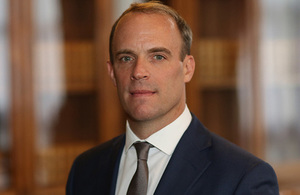Call for Bids 2020-2021
About the International Programme – Russia
The UK places value on building sustainable connections between British and Russian peoples in a range of common areas. The International Programme provides funding for projects that support activities directly connected with the UK’s foreign policy priorities.
Registered organisations are encouraged to submit concepts for projects that advance the goals of the International Programme in Russia:
-
To sustain links between people and institutions on a wide range of subjects, promoting collaboration and fostering mutual respect.
-
To champion democracy, human rights and the rule of law.
-
To address global and local challenges through policy dialogue and exchange of expertise.
-
To increase opportunities for doing business.
Project Formats and Focus Areas
Projects may be in a variety of formats including, but not limited to:
- Building relationships and networks
- Holding dialogues or exchange of expertise
- Joint research
- Promoting city-to-city and business-to business links
- Capacity building
- Supporting young leaders
Projects may address topics including, but not limited to:
- Environment (e.g. international climate change agenda / COP26*, the transition to a green economy, sustainable development)
- Science and innovation (e.g. life sciences, global health, the Arctic)
- Culture (e.g. arts and literature, education, shared history)
- Human rights and civil society (e.g. democratic accountability, fundamental freedoms, journalistic standards and media freedom)
- Security challenges (e.g. disarmament, non-proliferation, climate resilience)
- Business and trade (e.g. economic diversification, decreasing barriers, improved regulation)
Preparing and Submitting a Bid
Enter the first stage of the competition by submitting a Project Concept Form that outlines a project valued at £10,000 to £500,000** (or the equivalent) per fiscal year (ending 31 March) over a 1-3-year period***. Project costs must be provided in the currency of your organisation’s bank account.
To submit your application:
- Please complete the following documents in English and send them in single email to Projects.Russia@fco.gov.uk, indicating ‘Project Concept – name of your organisation’ in the subject line. *
- Please include in your email the contact details (name, title/role, email, phone number) of the individual(s) designated to attend the information session for organisations invited to the next stage of the competition, should your project concept be shortlisted (see below). If you have questions about your submission, please review the .
The deadline for project concept bids is 13:00 (MSK/UTC+3), 20 January 2020. Late submissions will NOT be accepted.
Notification and Next Steps
By 3 February 2020, we will invite selected bidders to the next stage of the competition by requesting a full project proposal. Due to the anticipated volume of project concepts, we reserve the right to reject bids at the concept stage without informing applicants of the grounds for rejection or providing feedback. Should you progress to the proposal stage, please anticipate attending an information session at the British Embassy in Moscow on 7 February 2020. We aim to make final decisions on project grants by 15 May 2020. Please note that bidding is competitive and we are not obliged to fund any or all proposals.
*Given that the UK will co-host the Conference of the Parties in November 2020, project concepts focused on climate change are highly encouraged.
** Sub-granting organisations may propose a higher figure.
*** Multi-year project bids and proposals must clearly identify activities and outcomes for each year. Please note that the continuation of the project is not guaranteed and depends on available funding and project performance.
